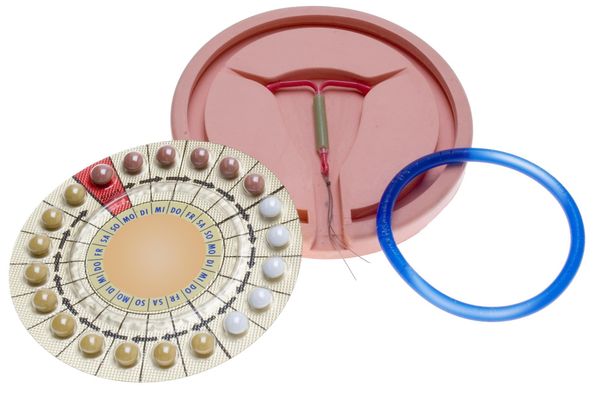New survey reveals significant emotional and physical workplace barriers to breastfeeding
Red Bank, NJ - Although many organizations, including the federal government, tout breastfeeding babies during the first six months of life as the healthiest choice new mothers can make for their child, a new survey by the not-for-profit National Women's Health Resource Center (NWHRC) and Medela, Inc. reveals 32 percent of new mothers give up breastfeeding less than seven weeks after returning to work because of significant barriers. This is particularly true of women in retail settings, younger moms and those with lower paying jobs.
Many work environments are falling short of supporting women and providing the resources they need to succeed at breastfeeding while working. The biggest barriers include no privacy, inflexible schedules, lack of refrigeration to store breast milk and insufficient or lack of company policies to allow them to take an adequate number of breaks to pump. In fact, while 60 percent of the survey respondents believe that the perception of breastfeeding in the workplace has grown more positive in recent years, 35 percent feel that there has been no change, and five percent consider it to have grown more negative.
Disparities among work environments
The survey shows mothers working in retail or service environments were least likely to breastfeed for six months or more after returning to work. Only 23 percent were able to do so compared to 42 percent of those who work from home or own a business, and 31 percent who work in other environments including office or classroom, factory or non-office and healthcare.
"The federal government's Healthy People 2010 initiative's breastfeeding goal is a 50 percent breast feeding rate at six months. Corporate America plays a big role in helping to achieve this goal, but sadly there are inconsistencies as new mothers at company headquarters are getting more support whereas those on the shop floor are not. In our survey, new moms told us their biggest barrier is the lack of a private, pumping-friendly environment and for some that means having to pump in a closet or bathroom stall," explains Irene Zoppi, RN, MSN, IBCLC, Medela's clinical breastfeeding education specialist.
Economic & Age Disparities
The survey revealed that more than half (51 percent) of working mothers aged 18 to 24 years give up breastfeeding by seven weeks after returning to work compared to 26 percent of working mothers aged 32 to 38 years and 32 percent of moms overall. Having less tenure and typically at lower income levels than their older counterparts in the workplace, younger moms said they found it particularly difficult to discuss their breastfeeding needs with their employers and request their support.
The survey also revealed the following:
- 77 percent of moms surveyed say that the flexibility in working from home was important in their decision to breastfeed their infant.
- 44 percent said they were not able to breastfeed as long as they wanted. This number jumps to 58 percent among younger moms.
- 23 percent said that work was the main reason they stopped breastfeeding. Among younger moms, 28 percent felt this way.
- Working mothers cite the three biggest physical barriers to breastfeeding in the workplace as the lack of a private pumping friendly environment (45 percent), inflexible work schedule (41 percent) and the lack of separate refrigerator to store breast milk (37 percent).
- The largest emotional barriers for working moms are the difficulty in scheduling time to pump (45 percent), being uncomfortable storing or cleaning pump supplies in front of co-workers (36 percent) and anxiety about discussing breastfeeding needs at work (33 percent).
- On a positive note, working mothers rank lack of management or supervisory support and a negative attitude from others at the work place as the smallest emotional barriers they experience.
"In our survey, new working moms send a clear message to employers about the most important attributes of a supportive work environment. These are, in order, a flexible schedule for pumping breaks as needed, providing electricity for pumping, and an office with a door to close for privacy," cites Elizabeth Battaglino Cahill, a practicing maternal fetal medicine nurse and vice president of the NWHRC.
With 4.14 million babies born in the U.S. in 2005 according to the National Center for Health Statistics, and more and more new mothers returning to work soon after giving birth, breastfeeding at work is an issue that is not going away.
"Legislators are beginning to take note. Eleven states now have laws regarding breastfeeding at work, but more can be done," adds Zoppi.
To help women understand the benefits of breastfeeding, overcome the challenges of breastfeeding, and learn important tips for breastfeeding success, NWHRC and Medela have created a free tip card. It also includes helpful hints for new moms to effectively transition back into the workplace. Tips include:
- Talk to your human resources director about your corporate policy on breastfeeding before leaving for maternity leave
- Ask your employer for a private, safe room for pumping
- Purchase a pump that will work with your work environment. For instance, most leading electric pumps also offer a battery option which might offer greater flexibility
- Seek out other working mothers that might provide support
Request a free copy of the tip card, visit the NWHRC Web site at https://www.healthywomen.org/tag/breastfeeding. To learn more about the survey or to get more information on breastfeeding, go to https://www.healthywomen.org/tag/breastfeeding or www.medela.com.
# # # #About the survey
The Survey of Working Moms was conducted jointly for the National Women's Health Resource and Medela, Inc by Troy Research, an independent research firm. Survey respondents consisted of 1,000 working mothers who have had a child within the past two years and breastfed at the point in time they returned to work. The margin of error is +/- 5 percent.
About Medela
Medela provides the most technologically advanced breast pumps and breastfeeding accessories to nursing mothers around the world. A long-time champion of breastfeeding, Medela is the only company to develop products based on research by the world's leading lactation experts. As a result, Medela's breast pumps are the number one choice of healthcare professionals and facilities worldwide.
Founded in 1961 by Olle Larsson in Zug, Switzerland, Medela continues to grow under the ownership of the Larsson family. Medela serves customers through a worldwide network of distribution partners in more than 90 countries and its 12 subsidiaries in the Benelux countries, Canada, France, Germany, Italy, Japan, Russia, Spain, Sweden and Switzerland, the United Kingdom and the United States.
About NWHRC
The National Women's Health Resource Center (NWHRC) is the leading independent health information source for women. The non-profit organization develops and distributes up-to-date and objective women's health information based on the latest advances in medical research and practice. NWHRC believes all women should have access to the most trusted and reliable health information.
Contact:
Amber McCracken
888-406-9472






